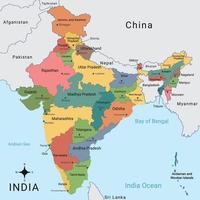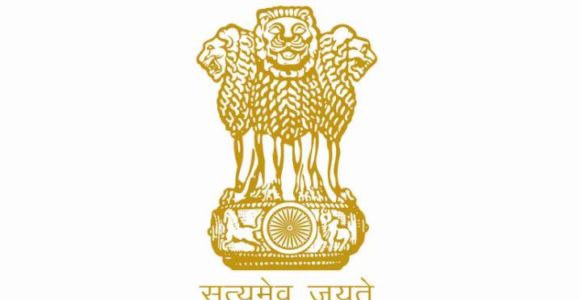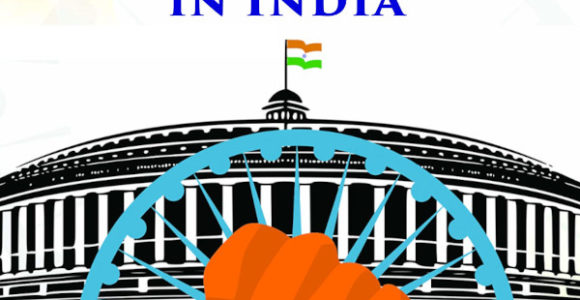Kocheril Raman Narayanan (K. R. Narayanan)
| Full Name | Kocheril Raman Narayanan |
| Date of Birth | October 27, 1920 |
| Place of Birth | Uzhavoor, Kottayam, Kerala, India |
| Father’s Name | K. R. Krishnan |
| Mother’s Name | Lakshmi Amma |
| Spouse | Usha Narayanan |
| Children | 2 (Son and Daughter) |
| Death | November 9, 2005 |
| Education | St. Berchmans College, Loyola College, London School of Economics |
| Diplomatic Positions | Ambassador to the USA, China, Japan, UK |
| Presidency | 1997-2002 |
| Awards | Bharat Ratna (1994) |

Introduction:
Kocheril Raman Narayanan, widely known as K. R. Narayanan, was a distinguished Indian diplomat, politician, and the 10th President of India. He was the first Dalit (from the lowest caste) to hold the office of President, a landmark achievement in Indian political history. Narayanan’s presidency was characterized by his commitment to transparency, integrity, and social justice.
Childhood & Early Life:
- Birth and Early Years: Narayanan was born on October 27, 1920, in the village of Uzhavoor in the Kottayam district of Kerala, India. He was born into a humble, low-caste family (Pulaya), which made his academic and professional achievements particularly remarkable, considering the social hierarchies in India at the time.
- Education: Narayanan’s academic excellence began early. He attended a local school in Uzhavoor and later studied at the St. Berchmans College in Changanassery. He completed his higher education at the prestigious Loyola College in Chennai, where he earned his undergraduate degree in Arts. Narayanan then went on to study in the United Kingdom, where he attended the London School of Economics (LSE) and obtained a postgraduate degree in economics. His time abroad broadened his perspectives on global politics and international relations.
Political Career:
- Early Career in Civil Services: After completing his studies in the UK, Narayanan returned to India and joined the Indian Foreign Service (IFS) in 1949. He quickly made a mark in diplomacy, representing India in various capacities in several countries.
- Diplomatic Assignments: Narayanan served as India’s Ambassador to a number of countries, including the United States, China, Japan, and the United Kingdom. During his tenure, he played a significant role in shaping India’s foreign policy, particularly strengthening relations with the United States and other global powers. His diplomatic acumen earned him international respect.
- Vice President of India (1992-1997): Before becoming President, Narayanan served as the Vice President of India from 1992 to 1997. During this period, he was widely respected for his impartiality and strong adherence to democratic principles, especially in his role as Chairman of the Rajya Sabha (Indian Parliament’s Upper House).
- President of India (1997-2002): Narayanan’s most iconic role came when he became the 10th President of India on July 25, 1997. He was elected with widespread support from various political parties, including those from the opposition. His presidency was significant for several reasons:
- Moral Leadership: Narayanan’s tenure as president was noted for his high moral standards and his willingness to take stands on issues of integrity and governance. He was not afraid to speak out on matters of public concern, especially regarding corruption, human rights, and social justice.
- Political Discretion: He used his constitutional powers to safeguard India’s democratic framework, including during periods of political instability. One of the most notable instances was in 1999, when he asked the then Prime Minister Atal Bihari Vajpayee to prove the majority in the Indian Parliament, leading to the eventual fall of the government in a no-confidence motion. This was a rare example of a president exercising such discretion.
- Championing Marginalized Communities: As the first Dalit President, he worked to raise awareness about the rights of Dalits and marginalized communities in India, making his presidency a symbol of empowerment for the underprivileged.
Major Works:
- Education: Narayanan consistently advocated for the education and upliftment of the Dalit community. He believed that education was the key to breaking the cycle of poverty and social exclusion.
- Promotion of Social Justice: Narayanan was deeply committed to promoting social justice and improving the lives of marginalized groups. He believed in the importance of affirmative action, reservation policies, and equality before the law.
- International Diplomacy: As an ambassador and a diplomat, Narayanan’s most notable contributions were in strengthening India’s relations with major global powers and improving India’s global image. His diplomatic skills and global outlook were key in shaping India’s foreign policy during his time.
Awards & Achievements:
- Bharat Ratna (1994): Before becoming President, K. R. Narayanan was awarded the Bharat Ratna, India’s highest civilian award, for his contributions to diplomacy and public service.
- Distinguished Diplomat: Narayanan was known for his strategic and nuanced approach to diplomacy, representing India’s interests on the global stage effectively.
- Breaking Barriers: His election as President broke a significant social barrier, as he was the first person from a Dalit background to hold the highest office in India.
- Writings: Narayanan was not only a diplomat and politician but also a thinker and writer. He authored numerous essays and speeches on Indian history, governance, and social issues.
Personal Life & Legacy:
- Marriage and Family: K. R. Narayanan was married to Usha, an academician who was a professor at Delhi University. Together, they had two children – a son and a daughter. Narayanan was known for his humble and unpretentious lifestyle, despite holding one of the most powerful positions in the country.
- Legacy: Narayanan’s legacy is remembered not only for his distinguished career in diplomacy and as President but also for his role in empowering Dalits and underprivileged sections of society. His presidency was a model of integrity, transparency, and moral leadership.
Trivia:
- Philosophical Outlook: Narayanan was known for his philosophical outlook on life. He believed deeply in the values of democracy, equality, and non-violence.
- Loved by the People: Despite his role as a head of state, K. R. Narayanan was seen as someone deeply connected to the people of India. His simplicity and humility won him affection from all quarters.
- A Scholarly Individual: Even after his presidency, Narayanan was often seen reading books and staying engaged in intellectual discussions. He had a keen interest in Indian history, politics, and economics.
K. R. Narayanan’s life journey from a small village in Kerala to the highest office in India is a testament to his exceptional character, resilience, and commitment to the values of democracy and justice. His impact is still felt today, especially in the areas of education, social justice, and moral leadership in public life.
Key Terms:
- Bharat Ratna ,
- Dalit President ,
- education advocate ,
- empowerment of marginalized communities ,
- India politics ,
- India’s first Dalit President ,
- Indian diplomat ,
- Indian Foreign Service ,
- Indian History ,
- K. R. Narayanan ,
- K. R. Narayanan biography ,
- legacy of K. R. Narayanan ,
- moral leadership ,
- political career ,
- President of India ,
- Social Justice
Disclaimer: The information provided here has been compiled from various sources to the best of our knowledge. While every effort has been made to ensure the accuracy of the details, there may be occasional errors or omissions. If you find any discrepancies or incorrect information, kindly inform us so we can make the necessary corrections. Thank you for your understanding and cooperation.





